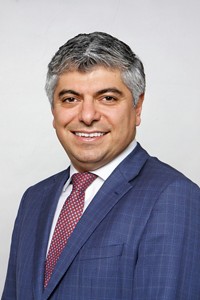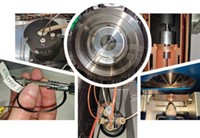Advertisement
Grab your lab coat. Let's get started
Welcome!
Welcome!
Create an account below to get 6 C&EN articles per month, receive newsletters and more - all free.
It seems this is your first time logging in online. Please enter the following information to continue.
As an ACS member you automatically get access to this site. All we need is few more details to create your reading experience.
Not you? Sign in with a different account.
Not you? Sign in with a different account.
ERROR 1
ERROR 1
ERROR 2
ERROR 2
ERROR 2
ERROR 2
ERROR 2
Password and Confirm password must match.
If you have an ACS member number, please enter it here so we can link this account to your membership. (optional)
ERROR 2
ACS values your privacy. By submitting your information, you are gaining access to C&EN and subscribing to our weekly newsletter. We use the information you provide to make your reading experience better, and we will never sell your data to third party members.
Instrumentation
Trade jitters come to the fore at Pittcon
Tariff issues introduce a chill into what has been a robust instrumentation market
by Marc S. Reisch
April 6, 2019
| A version of this story appeared in
Volume 97, Issue 14

Business leaders attending the Pittcon scientific instrumentation conference in Philadelphia predicted growing markets for their increasingly web-connected instruments this year. But they acknowledged that much depends on the still-uncertain impact of the UK’s departure from the European Union and how negotiators resolve trade issues between the US and China.
Held at the end of March, Pittcon took place after a strong 2018 for instrument makers. At the event, executives from firms such as Thermo Fisher Scientific, Waters, Shimadzu, and Bruker confirmed continued strength from industrial, academic, and pharmaceutical customers. A few also pointed to growing demand from the cannabis industry, most recently with legalized industrial hemp farming in the US.
At last year’s Pittcon, much of the talk was about the boost that instrument makers expected to get from US tax reforms. The reforms included benefits for purchasers of capital equipment and lower tax rates for corporations.
This year, executives said they hope to maintain last year’s momentum as global economic activity slows, while also attempting to maneuver around trade issues. In addition, many attendees emphasized the growing importance of the biopharmaceutical industry and of easier-to-use instruments, especially for quality analysis and control.
For the second year, the Pittcon exhibition covered 3 days instead of 4. More than 12,540 visitors, including chemists, lab managers, and academicians, gathered at the Pennsylvania Convention Center. Laid out before them were instruments, components, consumables, and software from more than 700 exhibitors.
Last year’s event in Orlando, Florida, attracted 11,415 attendees and about the same number of exhibitors as this year. The 2017 meeting in Chicago, often a favored location for attendees, attracted more than 14,000 visitors.
Dan Shine, senior vice president of Thermo Fisher, acknowledged “some general anxiety” about business growth but said so far “our markets continue strong.” Jitters over how the messy divorce between the UK and the European Union will work out is one cause for concern, he noted. News reports, for instance, indicate that warehouse space is hard to come by in the UK as firms stockpile goods in the country in anticipation of chaos moving merchandise over the border.
Another concern is the ongoing trade dispute between the US and China. In instrument makers’ favor, exports of US-made instruments to China are, for the most part, not being taxed when they are “aligned with Chinese government priorities,” Shine said. Some of the parts that Thermo Fisher uses to build its instruments come from China and are subject to US tariffs, he acknowledged. “But we have alternate supply sources in many cases, and so this is not a huge issue for us,” he said.
Shine also noted the growing importance to Thermo Fisher of the pharma and biopharma market, which now represents about 39% of the firm’s $24 billion in annual sales. Just days after C&EN spoke to Shine, the company announced it will spend $1.7 billion to acquire Brammer Bio, a contract manufacturer of viral vectors for gene therapy. The deal will augment Thermo Fisher’s foray into drug contract manufacturing established with the $7.2 billion acquisition of Patheon in 2017.
“We’ve learned a lot from the Patheon acquisition,” Shine said. “We’ve replaced some of our competitors’ older equipment at Patheon with our own equipment.” Ownership “has also helped us to be a better supplier to the industry” and given Thermo Fisher new insights into the drug business.
For instance, Thermo Fisher hasn’t historically been big in quality analysis and control in the pharmaceutical sector, Shine noted. But he said he sees growth ahead for the firm’s instrument business in that area.
Competitor Waters is also targeting drug industry quality control. The firm showcased its recently introduced BioAccord liquid chromatography/mass spectrometry system at Pittcon. It’s intended for formulation, process development, and routine monitoring of biopharmaceuticals, including synthetic peptides and oligonucleotides.
While others are repositioning research instruments for quality-control use, Waters developed the BioAccord specifically to serve routine drug-monitoring needs. Introduction of the BioAccord gives Waters “a first-mover advantage,” said Jeff Mazzeo, the firm’s marketing vice president.
In a note to investors, analyst Puneet Souda of the investment firm SVB Leerink heralded the BioAccord but questioned whether lab directors, who are “generally not amenable to change,” will embrace the system. Waters introduced the first ultra-high-pressure liquid chromatography system in 2004, but it took years to gain traction, Souda pointed out.

Waters is well known for its market-development patience and persistence, Souda noted. Waters intends to push ahead with the BioAccord, Mazzeo said, and is working with the automation experts Tecan and Hamilton to add robotic sample-handling capabilities.
The new instrument is self-calibrating and self-monitoring, Waters said, making it easier to use by nonexperts. Competitor Agilent Technologies said it is doing the same for some of its instruments, including the recently introduced 8890 and 8860 gas chromatography systems. Like instruments from other makers, Agilent’s new gas chromatographs can upload data for cloud processing and storage; they also allow customers to order supplies through the web-connected instruments.
While Agilent was not at the Pittcon show, the firm invited reporters to meet executives at its nearby Wilmington, Delaware, gas chromatography facility. Shawn Anderson, senior software and informatics director, acknowledged data security is a concern for Agilent and its customers. He advised instrument users to hacker testtheir home pages and recommended the use of virtual private networks to safeguard data.


Shimadzu, which did attend Pittcon, also emphasized the importance of what it calls the artificial intelligence of its latest instruments. Its new Nexera series of internet-connected ultra-high-performance liquid chromatographs, for example, can automatically detect and correct flow anomalies, track consumable use, and send alerts when parts need replacing.
The firm, which placed second after Thermo Fisher in C&EN’s recent ranking of instrument firms, also added a high-performance liquid chromatograph it calls the Hemp Analyzer. Shimadzu describes the instrument as an all-in-one package including hardware, software, consumables, and analysis software to determine cannabidiol and cannabinoid content.
Launch of the Hemp Analyzer follows the December 2018 passage of the US farm bill, which allows farmers to legally grow hemp. In 2017, the firm debuted a cannabis-potency analyzer, which it touted as the first instrument designed for users without chromatography experience.
Katsuaki Kaito, president of Shimadzu’s North American unit, said he and his colleagues are keeping a close eye on tariff issues. The firm’s policy is to, when possible, manufacture in the US for US customers and in China for Chinese customers. While Kaito said he can’t predict what will happen with tariffs, he said the impact on Shimadzu will be limited because of its global manufacturing footprint.
Scott Kuzdzal, Shimadzu’s marketing vice president, added, “China is our fastest-growing market now,” while academic and biopharma markets remain strong. In the environmental area, he sees growing demand for instruments that can track the presence of per- and polyfluoroalkyl substances (PFAS) in groundwater. Interest in those persistent compounds is not restricted to the US and Europe, where they have made headlines. Chinese authorities are also watching PFAS as they sharpen their focus on health-threatening chemicals in the environment, Kuzdzal said.
Bruker introduced several new instruments, a number of which focus on quality control. Among them are the Invenio-S Fourier transform infrared spectrometer system for materials characterization and the G6 Leonardo inert gas fusion analyzer.
CEO Frank Laukien also spoke about Bruker’s acquisition of Arxspan, a provider of cloud-based scientific software with an emphasis on drug discovery and development. The Arxspan purchase, completed just before Pittcon started, continues an effort to build up a software business, he said. Last year, Bruker bought a majority stake in Mestrelab Research, a maker of chemical information management software for nuclear magnetic resonance and other instruments. Bruker is the dominant supplier of high-field NMR equipment.
Laukien also voiced concern over the current trade disputes and their impact on instrument makers. Disagreements between trading countries could escalate, he told C&EN. But like other executives at Pittcon, he said the tariffs have had “minimal impact” so far on Bruker and are “manageable,” for now.




Join the conversation
Contact the reporter
Submit a Letter to the Editor for publication
Engage with us on Twitter